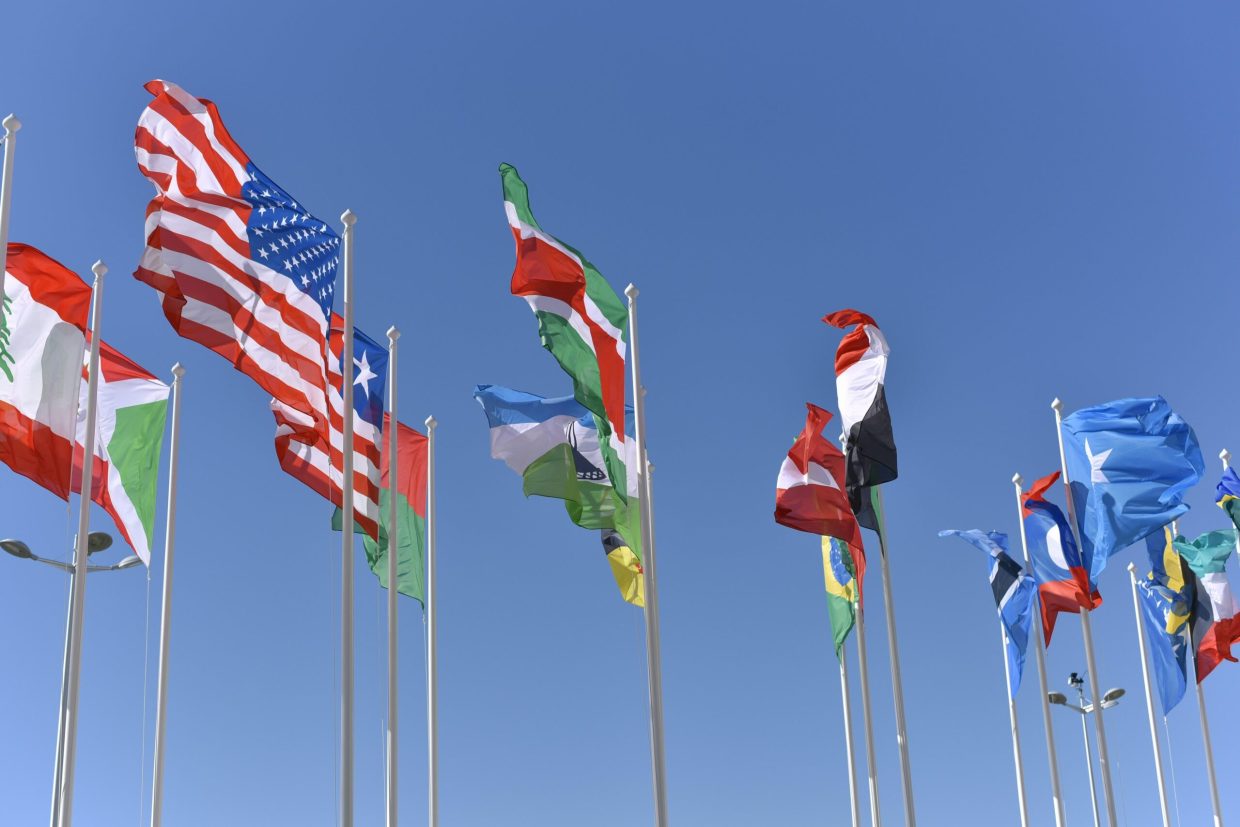In a rapidly shifting world order, the rise of multiple power centers is reshaping how nations forge alliances and safeguard their interests. No longer dominated by a single superpower, the new era of multipolarity demands a more nuanced approach to diplomacy and cooperation. From economic partnerships to strategic security pacts, global alliances are being redefined in the face of emerging challenges and opportunities. In this article, we explore how countries navigate this complex landscape, the implications for international stability, and what the future holds for global collaboration in an increasingly diverse power structure.
Table of Contents
- Shifting Dynamics Shaping Global Alliances in a Multipolar World
- Navigating Challenges and Opportunities for Emerging Power Blocs
- Strategic Approaches for Strengthening Multilateral Cooperation
- Practical Recommendations for Sustainable Diplomatic Partnerships
- Final Thoughts
Shifting Dynamics Shaping Global Alliances in a Multipolar World
As the global power structure moves away from unilateral dominance toward a more interconnected, multipolar landscape, the nature of alliances is undergoing profound transformation. Traditional partnerships rooted in ideological alignment or historic ties are now being reconsidered in favor of strategic flexibility and pragmatic cooperation. Countries are prioritizing their national interests and shared economic goals, rather than relying solely on established blocs, which is leading to a more fluid and dynamic constellation of alliances.
This evolution is characterized by several emerging trends that define the new era:
- Issue-based coalitions: Nations are increasingly forming temporary partnerships focused on specific challenges such as climate change, technology governance, or regional security.
- Multipurpose alliances: Flexible agreements that blend military, economic, and diplomatic agendas without binding long-term commitments.
- Increased regional influence: Rising powers within regions are asserting greater autonomy, encouraging alliances that prioritize regional stability and growth.
- Non-traditional actors: The inclusion of private sector and non-state entities is reshaping how alliances function and exert influence globally.
These shifting dynamics highlight the complex chessboard on which global diplomacy now operates — one where adaptability and mutual benefit dictate the new rules of cooperation.
Navigating Challenges and Opportunities for Emerging Power Blocs
Emerging power blocs today face a delicate balancing act where strategic foresight becomes a non-negotiable asset. These new players must navigate a complex web of economic partnerships, security concerns, and cultural diplomacy, often under the shadow of more established global powers. Success hinges on their ability to transform potential vulnerabilities into strengths, capitalizing on shifting trade patterns, technological advancements, and geopolitical realignments. Aligning interests with regional neighbors while also projecting influence on the wider international stage requires a nuanced approach—one that prioritizes adaptability and long-term vision.
Key challenges and opportunities include:
- Economic integration: Leveraging regional markets to forge resilient supply chains that reduce reliance on traditional superpowers.
- Technological collaboration: Pooling resources in innovation hubs to compete in global tech and digital economies.
- Diplomatic agility: Engaging in multilateral forums with flexible alliances that shift according to evolving interests.
- Security partnerships: Establishing defense pacts that address both conventional threats and emerging cyber vulnerabilities.
By harnessing these elements, emerging blocs can carve out robust spheres of influence, transforming challenges into powerful leverage points in the unfolding multipolar world order.
Strategic Approaches for Strengthening Multilateral Cooperation
In the shifting landscape of global politics, forging stronger multilateral ties requires innovative frameworks that transcend traditional alliances. Emphasizing inclusive dialogue and fostering mutual trust among emerging powers is essential to building resilient coalitions. Key strategies include:
- Championing equitable representation in international decision-making bodies
- Encouraging transparency and accountability in collaborative projects
- Integrating diverse cultural perspectives to enrich diplomatic engagement
Simultaneously, leveraging technology to facilitate seamless communication and data sharing can break down barriers that once hindered cooperation. Establishing dedicated platforms for real-time collaboration enables stakeholders to respond dynamically to global challenges. Investing in capacity-building initiatives further ensures that all participants possess the tools and knowledge to contribute effectively, thereby strengthening the fabric of worldwide partnerships.
Practical Recommendations for Sustainable Diplomatic Partnerships
Forging diplomatic partnerships today requires an approach that transcends traditional paradigms. Stakeholders must prioritize mutual respect and equitable dialogue, ensuring that all voices — especially those from emerging powers — are granted genuine influence and recognition. This can be strengthened by fostering transparent communication channels, cultivating trust that withstands geopolitical fluctuations. By embedding adaptive frameworks within alliances, nations can better navigate uncertainties, promoting stability without compromising individual sovereignty.
To enhance resilience, it is essential to integrate environmental, economic, and social dimensions into the fabric of diplomatic strategies. Proactive collaboration on global challenges — such as climate change and digital governance — unlocks shared innovation and protects collective interests. Practical tactics include:
- Joint capacity-building initiatives that empower less-resourced partners and encourage knowledge exchange
- Flexible conflict resolution mechanisms tailored to cultural contexts
- Periodic alliance assessments focused on impact and inclusivity metrics
These recommendations cultivate partnerships not only capable of enduring the complexities of multipolarity but also agile enough to seize emerging opportunities in a rapidly shifting global landscape.
Final Thoughts
As the world continues to shift from unipolar dominance to a complex multipolar landscape, global alliances are being redefined in real time. This new era demands greater flexibility, nuanced diplomacy, and a keen understanding of emerging power centers. For nations and stakeholders alike, navigating this evolving web of relationships is not just a strategic imperative—it’s the key to securing stability and mutual prosperity in an increasingly interconnected world. Staying informed and adaptable will be crucial as these alliances shape the geopolitical contours of the 21st century. Stay tuned as we continue to track how these dynamic partnerships unfold on the global stage.













